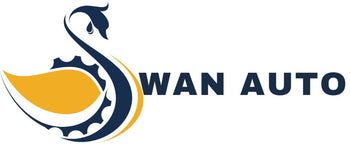OEM Car Parts
When it comes to keeping your vehicle in top-notch condition, the parts you choose matter significantly. Original Equipment Manufacturer (OEM) car parts play a crucial role in maintaining the integrity and performance of your vehicle.
No matter if you drive a Toyota or another brand, it's important for every car owner to know the benefits of OEM parts.
What Are OEM Car Parts?
OEM car parts are components made by the same manufacturer that produced the original parts used in your vehicle. These parts are identical to the parts that came with your car when it rolled off the assembly line. They are designed to fit perfectly and function just as the original parts did.
Why Choose OEM Auto Parts?
There are numerous reasons why you might opt for OEM parts over aftermarket alternatives. Here, we'll explore some of the primary advantages of choosing OEM car parts.
Perfect Fit and Functionality
One of the most significant advantages of OEM car parts is that they are made to fit your vehicle perfectly. There is no need for adjustments or modifications, which ensures that the part functions as intended.
This good fit keeps the vehicle running well. It can also stop problems that may happen from using the wrong parts.
Quality Assurance
OEM parts come with the assurance of quality. Since these parts are made by the same manufacturer that built your car, they must adhere to strict quality standards. This ensures that you receive parts that meet the same specifications as the original components, providing peace of mind regarding the part's durability and performance.
Warranty Protection
Using OEM parts can also protect your vehicle's warranty. Many car manufacturers require the use of OEM parts to maintain the warranty. Using aftermarket parts could potentially void your warranty, which may lead to costly repairs not covered by the manufacturer.
Comparing OEM and Aftermarket Parts
While OEM parts offer numerous benefits, it's essential to understand how they compare to aftermarket parts. Aftermarket parts are produced by third-party manufacturers and can vary significantly in terms of quality, price, and compatibility.
Quality and Reliability
While some aftermarket parts may match OEM quality, others may fall short.
Inconsistent quality can cause problems with how your vehicle works or even harm it.
OEM parts, on the other hand, are built to the exact specifications of your vehicle's original components, ensuring reliability and longevity.
Price Considerations
One of the main reasons car owners choose aftermarket parts is their lower cost. However, while aftermarket parts may be cheaper upfront, they can end up costing more in the long run if they lead to additional repairs or reduced performance. OEM parts, although typically more expensive, provide better value by ensuring optimal vehicle performance and reducing the risk of future issues.
Availability and Selection
Aftermarket parts offer a broader selection and are often more readily available than OEM parts. However, this wide selection can be overwhelming, and choosing the wrong part can lead to compatibility issues. OEM parts simplify the process by offering components specifically designed for your vehicle.
OEM Car Parts for Toyota Vehicles
Toyota is known for its reliability and quality, and using OEM Toyota car parts oem is crucial to maintaining these attributes. When you choose OEM parts for your Toyota, you ensure that your vehicle continues to perform at its best.
Benefits of Toyota OEM Parts
- Reliability: Toyota OEM parts are engineered to provide the same reliability and durability as the original parts.
- Warranty Coverage: Keeping your Toyota warranty intact is easier when you use OEM parts.
- Optimal Performance: With Toyota OEM parts, your vehicle maintains its original performance standards.
How to Purchase OEM Car Parts
Finding the right OEM parts for your vehicle doesn't have to be a daunting task. Here are some steps to help you purchase OEM car parts with confidence.
Identify Your Needs
Before purchasing OEM parts, it's essential to identify the specific parts you need. Consult your vehicle's manual or contact a professional mechanic to determine the exact components required for your repair or maintenance task.
Choose a Reputable Supplier
Purchasing OEM parts from a reputable supplier ensures you receive genuine components. Authorized dealerships and certified online retailers are often the best sources for OEM parts. They can also provide expert guidance and support throughout the purchasing process.
Verify Part Numbers
To avoid compatibility issues, verify the part numbers before making a purchase. Cross-check the part numbers with your vehicle's specifications and consult with the supplier if you have any doubts.
Consider Installation
Once you've purchased your OEM parts, consider how they will be installed. While some parts can be replaced with basic tools and a bit of know-how, others may require professional installation. If you're unsure about the installation process, it's best to consult with a certified mechanic.
Conclusion
OEM car parts are a wise investment for anyone looking to maintain their vehicle's performance, reliability, and warranty. By choosing OEM parts, especially for brands like Toyota, you ensure that your car remains in optimal condition for years to come. Whether you're performing routine maintenance or addressing specific repairs, OEM parts provide the quality and peace of mind that every car owner deserves.

Comments